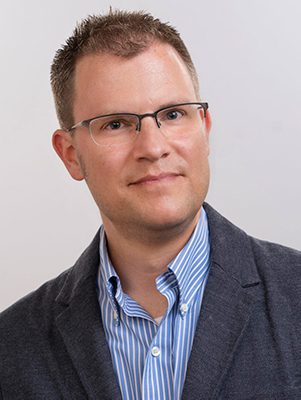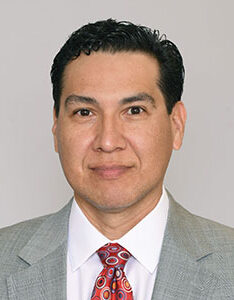The Scientific Advisory Committee is led by six esteemed experts serving a 12-month term (April 2022-2023), who are providing high-level guidance to the OMNI-RÉUNIS’ governing bodies on project themes and research outcomes. Their expertise ranges from modelling zoonotic agents to epidemiology, to evolution and ecology modelling, to models to address public health and more, as well as equity, diversity, inclusion, and decolonization.
Membership
Term: 2022-2023

Dr. Zhilan Feng
Purdue University
Zhilan Feng studied mathematics at Jilin and Arizona State Universities, where she was a doctoral student of Horst Thieme. She was a post-doctoral and visiting fellow with Carlos Castillo-Chavez and Simon Levin at Cornell and Princeton Universities, respectively, before joining the faculty in the Department of Mathematics at Purdue University, where she became full professor in 2005. She is currently a program director for the Mathematical Biology program in the Division of Mathematical Sciences at the National Science Foundation. She was elected a Fellow of the American Mathematical Society in 2021. Her research includes mathematical modeling of ecology and epidemiology using ordinary, partial, and integro-differential equations. Many of her research projects had been partially supported by grants from NSF, CDC, James S. McDonnell Foundation, and Showalter Trust. She has supervised 16 Ph.D. students at Purdue University. She has co-authored three books and published more than 100 papers on mathematical biology and applied mathematics. She served as an editor for Journal of Theoretical Biology, Mathematical Biosciences, SIAM Journal of Applied Mathematics, and Journal of Biological Dynamics. She is currently a member of the Board of Directors of SMB.

Dr. Justin Remais
University of California
Prof. Justin Remais’ research advances methods for estimating the health risks that result from a wide range of environmental changes, such as those associated with rapid urbanization, industrialization, changes in water resources, and a changing and more variable climate. His research group at Berkeley has led NIH- and NSF-funded global projects with partners in China, Ecuador and Senegal that address fundamental questions regarding how infectious diseases spread, and what can be done to interrupt their transmission. Prof. Remais led a team that published seminal work in The Lancet on the health consequences—both adverse and beneficial—of rapid urbanization in China, and its interaction with population aging and other demographic trends. In other work, his group was the first to show that famine induces long-term and intergenerational effects on infectious disease transmission (PNAS), and he led the first international research effort to estimate the burden of water, sanitation and hygiene-attributable infectious diseases across China in the presence of a changing climate (Nature Climate Change). He leads NSF- and NIH-funded research investigating COVID-19 transmission dynamics within school settings; how hydrodynamics and social dynamics interact to influence the transmission of waterborne pathogens in Ecuador and China; and how agrochemical use influences the transmission of parasitic diseases in West Africa. His group’s other major NIH-funded research is developing of new approaches for simulating and optimizing surveillance networks to detect existing and emerging infectious diseases under changing epidemiological and environmental conditions, with a focus on diarrheal diseases, malaria, dengue, leptospirosis, TB, Japanese encephalitis, schistosomiasis and HFMD. His research projects in California include an investigation of the changing epidemiology of West Nile virus in the state, and research on the spread of coccidioidomycosis through drought and heavy rainfall cycles. Prof. Remais received his MS in Civil and Environmental Engineering and PhD in Environmental Health Sciences from the University of California, Berkeley.

Dr. Karine Chalvet-Monfray
VetAgro Sup (Lyon, France)
Professor Karine Chalvet-Monfray is a veterinarian and full professor of Statistics and Epidemiology at VetAgro Sup (Lyon, France) since 2013. She obtained a PhD in Biometrics in 1996 and accreditation to supervise medical research in 2006. Since 2015, she is Deputy Head of the research unit “epidemiology of animal and zoonotic diseases” at INRAE. She teaches the modelling of infectious diseases in the faculty of medicine (Lyon and Grenoble). Her topic of interest is the modelling of zoonotic infectious diseases in link with the environment and weather.

Dr. John Edmunds
London School of Hygiene & Tropical Medicine, University of London
Dr. John Edmunds, OBE FMedSci is a British epidemiologist, and a professor in the Faculty of Epidemiology and Population Health at the London School of Hygiene & Tropical Medicine. Edmunds studied at Imperial College London where he was awarded a PhD in 1994 for research investigating the epidemiology of hepatitis B. Edmunds specialises in the design of control programmes against infectious diseases, including chlamydia, the 2009 swine flu pandemic, the HPV vaccine, and the Western African Ebola virus epidemic. In 2009, he established the annual online Flusurvey project to track the extent and evolution of UK seasonal influenza. Edmunds is a member of the New and Emerging Respiratory Virus Threats Advisory Group (NERVTAG), and one of more than 50 attendees of the Scientific Advisory Group for Emergencies (SAGE) advising the UK government on the COVID-19 pandemic. Coalition for Epidemic Preparedness Innovations (CEPI), Member of the Scientific Advisory Board. Edmunds was appointed an Officer of the Order of the British Empire (OBE) in the 2016 New Year Honours, “for services to infectious disease control particularly the Ebola crisis response in West Africa”. He was elected a Fellow of the Academy of Medical Sciences (FMedSci) in 2018.

Dr. Lancer Stephens
University of Oklahoma
Lancer Stephens is a member of the Wichita and Affiliated Tribes of Oklahoma through his father and also half Muscogee (Creek) through his mother. Dr. Stephens is an Associate Dean for Sovereignty, Equity, Diversity and Inclusion, and an Associate Professor of Research at the Hudson College of Public Health where he teaches classes on American Indian health, ethical research with diverse populations and social and behavioral factors of public health. Lancer’s interests revolve around children’s health, increasing motivation for healthy behaviors, diversity and its effect on disease prevention. Dr. Stephens is heavily involved with the development and continued support of non-profit organizations such as the Native Youth Preventing Diabetes (NYPD) coalition, the Oklahoma Inter-Tribal Diabetes Coalition (OIDC), and the Oklahoma Tribal Finance Consortium (OTFC), all of which are geared toward increased education, resources and disease prevention practices throughout Oklahoma’s American Indian populations. Dr. Stephens also serves many of the tribes throughout Oklahoma through board and community service to further strengthen OU’s relationship with Oklahoma’s sovereign tribal nations and is an advocate for enhancing tribal research and partnerships.

Dr. Matt Keeling
University of Warwick
My research focuses on the three E’s: Epidemiology, Evolution and Ecology. I am particularly interested in how spatial structure, heterogeneities and stochasticity affect the emergent population-level dynamics; as such my work uses a wide range of modelling tools and concepts. While large-scale simulations play a substantial role in my work, I’m also very keen to develop simple modelling techniques that can capture the important dynamics of a system. More recently I’ve become increasingly involved in science advice for policy and how this can be best achieved.
Some of my interests include: Optimal control of infection, cost-effective vaccination, policy-relevant prediction, vector-host dynamics, within-host immunological dynamics, disease evolution in response to control, climate and population change. I’d worked on a number of infections including: Avian influenza; Bovine tuberculosis in livestock; Bubonic plague; Childhood infections (including Measles and Whooping Cough); COVID-19; Foot-and-mouth disease; (seasonal and pandemic) Influenza; and a range of Neglected Tropical Diseases .
For more information on my research and that of my group see the Epidemiology section of the SBIDER page.
